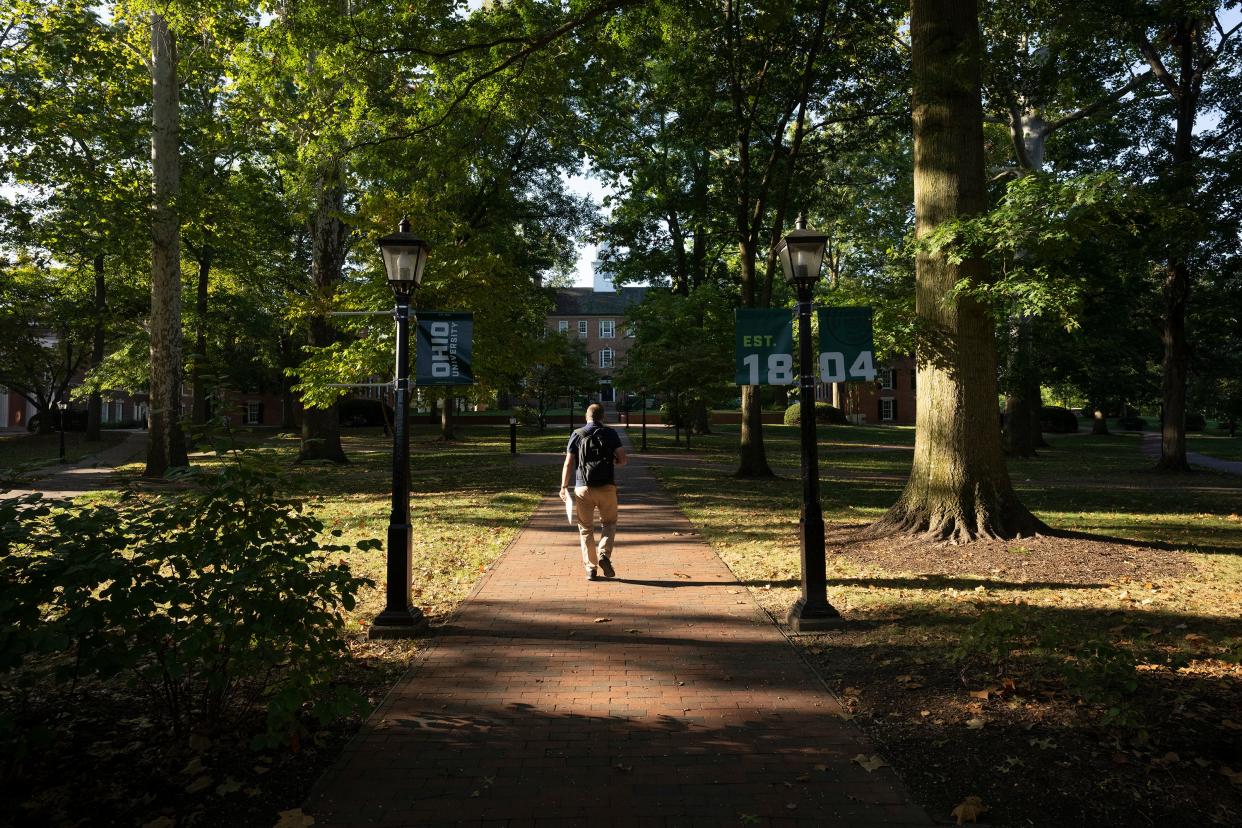Athens is not the most inviting place for electric vehicles. What we are doing about it.

Steve Patterson is the Mayor of Athens.
Like most non-urban communities, my hometown of Athens in Ohio’s Appalachian foothills is not the most inviting place for electric vehicles.
Drivers have access to just six public EV charging stations in the city. Only one is high speed.
We’re not alone.
The U.S. only has 63,000 charging stations, nearly half of them concentrated in just five states. A survey by the Energy Policy Institute found nearly four out of five consumers say scarcity of chargers is an obstacle to buying an electric vehicle.
To meet that challenge, the two-year-old federal Bipartisan Infrastructure Law provides $7.5 billion for a nationwide network of 500,000 EV chargers. Our governor, Mike DeWine, has put Ohio at the forefront of this electric infrastructure future.
To us, that spells opportunity.
A bill to improve our lives: Infrastructure law will help grow businesses, improve our lives, COTA president says
Yet it’s easy to have high hopes; much harder to make them real. We don’t have the teams of lawyers, grant writers, and in-house experts our big city competitors can deploy.
What we in rural southeast Ohio need is the capacity to navigate the process and deliver on these ambitions.
Thankfully, initiated by Bloomberg Philanthropies, a coalition of philanthropies and non-profit groups have responded to that call. They’ve brought together funders including the Ballmer Group, Emerson Collective, Ford Foundation, The Kresge Foundation and specialists like the National League of Cities and the U.S. Conference of Mayors to create the Local Infrastructure Hub: guiding more than 1,200 small and medium-sized cities and towns, including mine, through the intricacies of federal grant programs.
I took office with a simple vision.
I wanted more economic opportunities. I wanted to see we were improving our infrastructure. I wanted more outdoor recreational spaces. I also wanted to be the best city we could be in our diversity, equity, and inclusion efforts.
Our view: Investment in infrastructure would move Ohio and America forward
Can Ohio Democrats win statewide? Can Ohio Democrats win statewide offices? They can't even field a Statehouse farm team
When we decided to seek funding for EV charging stations, we envisioned a service for our residents, pass-through drivers, and for visitors who value our region as a destination.
Athens County boasts the growing Bailey’s Trail System; the Hopewell Ceremonial Earthworks, Ohio’s newly designated UNESCO World Heritage site, will attract tourists from around the globe.
We enrolled in a months-long Local Infrastructure Hub Bootcamp because we chose to aim higher.
We heard from like-minded participants and received tailored advice from seasoned grant writers and urban policy experts. The federal government, they told us, wanted a bigger impact than just a handful of stations in a small community.
We had experience creating regional partnerships, so we took that guidance and ran with it.
We partnered with a regional electricity aggregator, the Sustainable Ohio Public Energy Council, to spearhead an effort involving 19 disadvantaged communities. Our $17.5 million federal grant application seeks funds for 58 EV charging stations consisting of 224 medium-speed and 66 high-speed charging ports, stretching from Athens to Dayton.
At the dawn of the automobile era, drivers who wanted to travel any great distance had to strap fuel containers to the running boards of their cars. Gas stations changed that, and from 1910 to 1918, automobile use in the U.S. rose from half a million to more than 6 million.
There’s a lesson in that history. Today, the Biden administration wants 50 percent of all new cars and trucks sold to be electric by 2030. It’s a tall order. Consumers want a reliable network of modern, inexpensive “filling” stations before making the leap.
As we await word on our application, we know we could not have gotten this far alone.
It is critical more towns tap into these expert supports and networks. It’s the only way Washington’s – and Ohio’s – infrastructure goals will be realized—where they are needed most.
Steve Patterson is the Mayor of Athens.

This article originally appeared on The Columbus Dispatch: Why is matters that small towns like Athens, Ohio have EV charging

